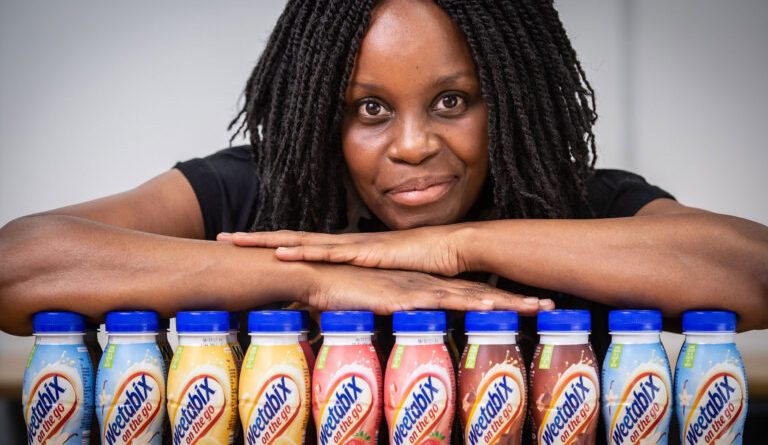99% of Weetabix Food Company packaging to be recyclable by summer 2022
Weetabix Food Company intends to hit the milestone of 99% of its packaging being widely recyclable by summer 2022. The company is on track to make 100% of its packaging recyclable ahead of the 2025 deadline set by WRAP for the UK Plastics Pact.
Key changes in the works for Weetabix this year include transitioning the Protein line of its Weetabix On the Go breakfast drinks to the widely recyclable PET bottles it introduced last year. The company has invested in extensive trials to ensure the clear PET bottle is able to keep the nutritional properties of the drink from deteriorating in sunlight. The new bottle will be 51% recycled content (rPET), reducing its carbon footprint by 7%.
The Northamptonshire-based cereal firm is also set to unroll an improved, widely recyclable paper wrap across all its biscuits, including Weetabix Original, Flavours and Protein. The wrap balances the need to keep the cereal fresh throughout its shelf life with the need to be recyclable at kerbside. The improved paper wrap also has a much smaller carbon footprint, delivering a 20% reduction in emissions compared to the existing packaging.
The news is announced as Weetabix also publishes its 2021 Sustainability Report, detailing progress on all sustainability commitments to date, such as continuing to source all wheat for Weetabix Original within a 50-mile radius of its mills in Northamptonshire, UK. Alongside the news that the company will hit an industry-leading milestone for recyclable packaging, the report announces achievements across sustainable ingredients, efficient operations and health and wellbeing.
In a further move towards reducing the overall carbon footprint, Weetabix has also agreed a deal with UK-based green energy supplier Smartest Energy to supply factories with certificate-backed natural renewable energy, generated by wind, solar and water power. The imported renewable energy will supplement the existing generation that Weetabix has on site at Burton Latimer and will help to reduce the company’s Scope 2 emissions. In addition to this deal, the company has invested in a capex project to capture and reuse water that becomes steam during its manufacturing process, saving over 1 million litres of water annually.

